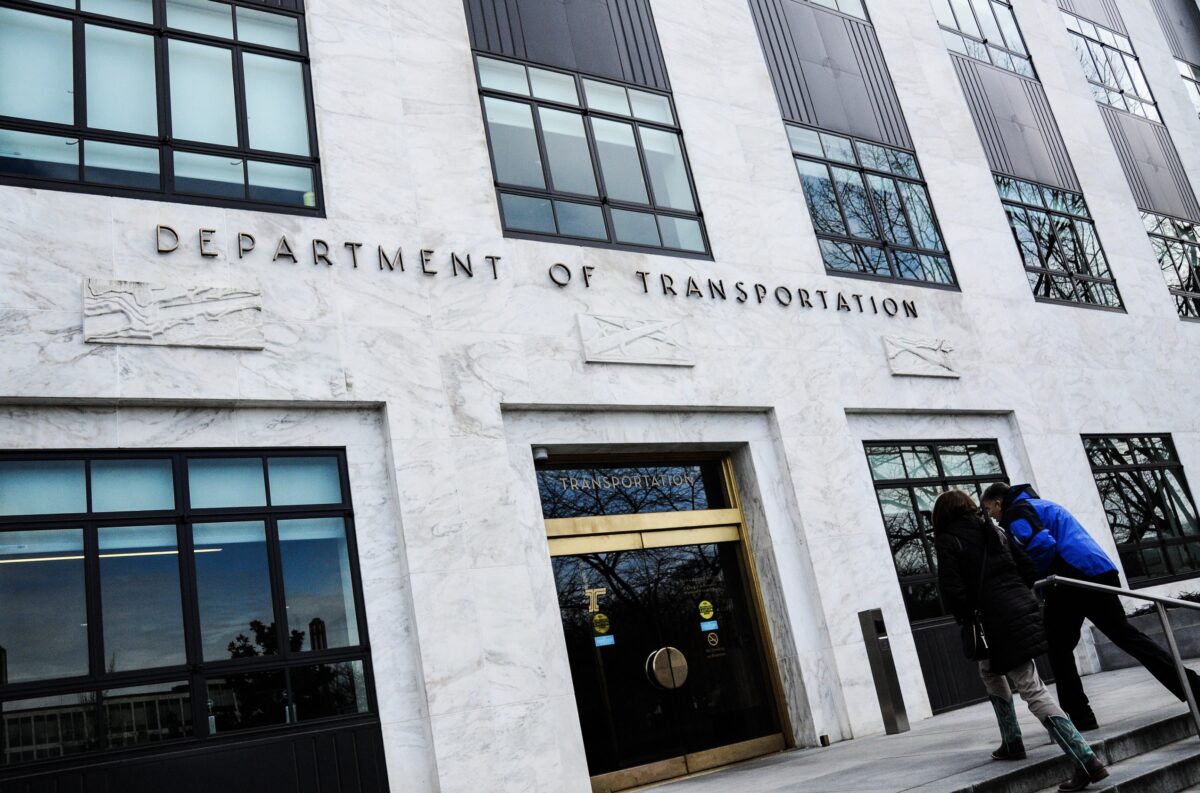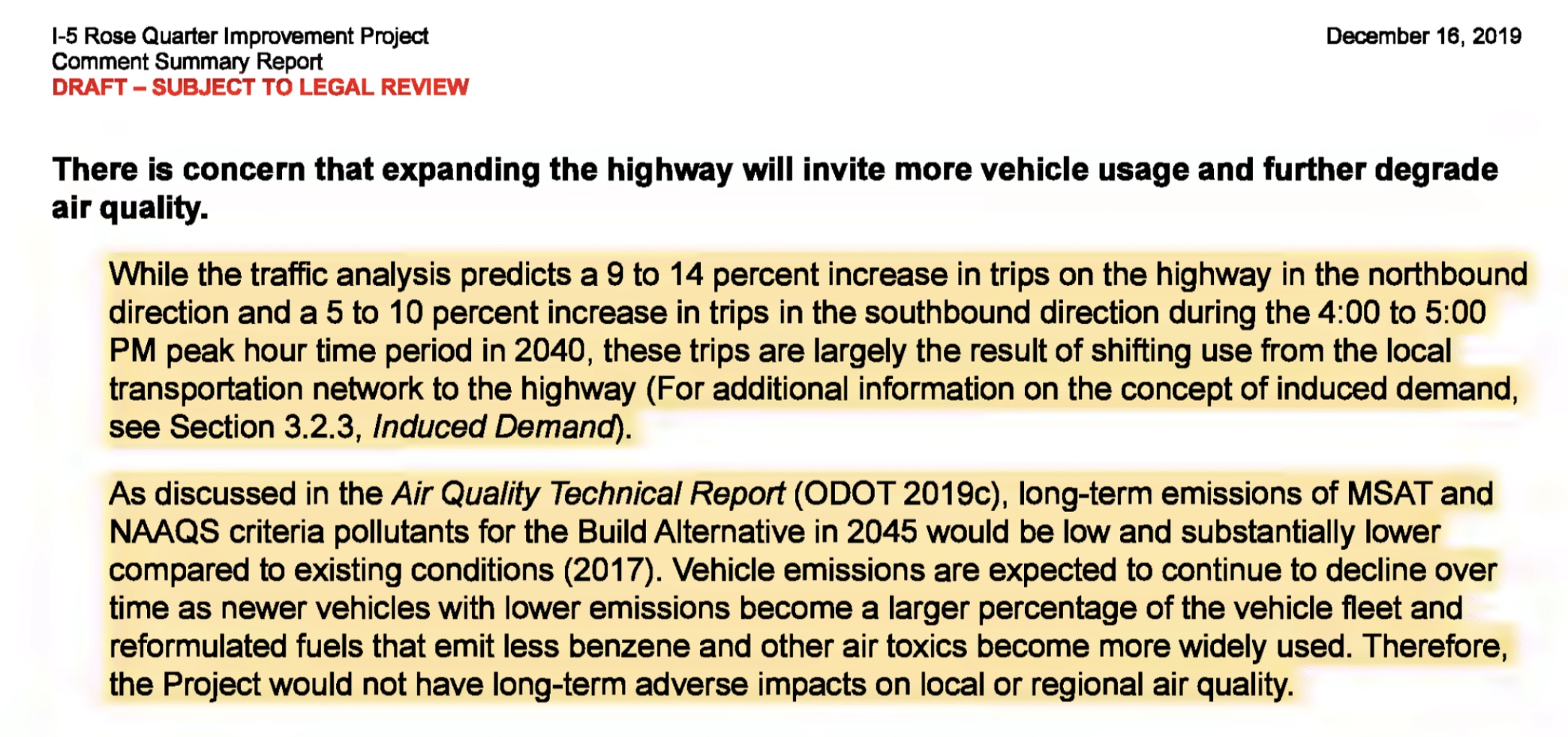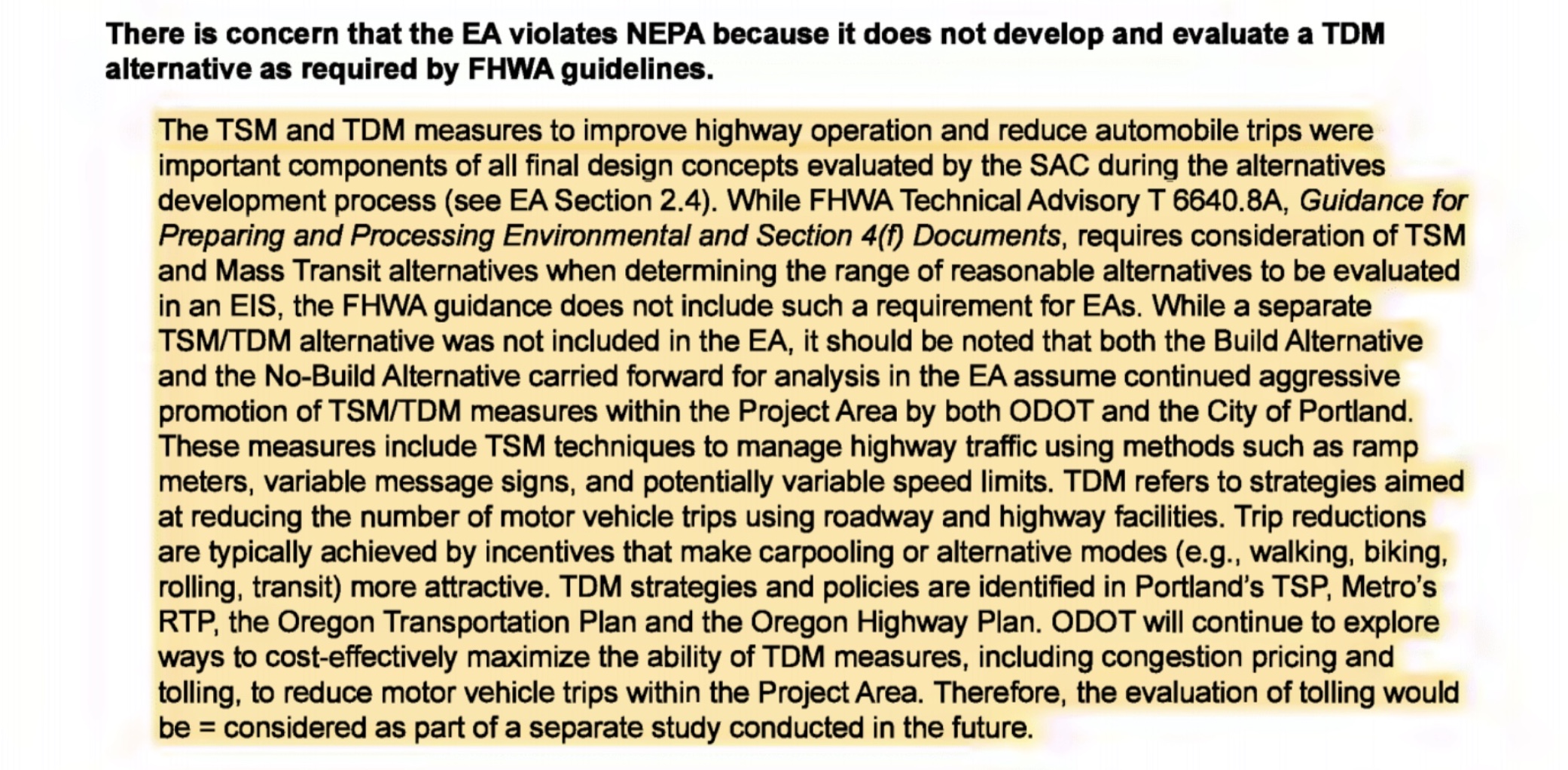
“It’s not a public involvement campaign. It’s a PR campaign. [This project] is deeply unpopular, and ODOT has to work really hard just to spin it as anything but.”
– Alan Kessler, lawyer
The Oregon Department of Transportation has wanted to get its I-5 Rose Quarter expansion done for well over a decade, but a host of challenges have gotten in the way of construction for the $1 billion project. Among the thorns in ODOT’s side are local transportation and climate advocates, who have sounded the alarm on things they say ODOT has been misleading the public about while the agency vehemently defends the project’s popularity.
These advocates have recently received good news in the form of a ruling issued by a Marion County judge earlier this week that detailed major ODOT missteps in how they handled a public records request .
This ruling concludes a lengthy saga that began when Portland lawyer Alan Kessler attempted to find out some details about what went on behind the scenes of a 2019 ODOT report outlining public comment they received about the Rose Quarter project. When he finally received the documents he’d requested, however, Kessler knew they weren’t up to snuff.
Related: ODOT says US DOT Sec Pete Buttigieg will be Oregon’s ‘new best friend’
“A lot of stuff was cut out,” Kessler told BikePortland on a phone call earlier this week. “They deleted most of the most of the substantial stuff from this Word document, edited some words to make it look like it was a real document, and then made a PDF of it and sent it to me.”
ODOT officials admitted they created a new document in response to Kessler’s public records request, which is not normal for a public agency to do. They may redact certain pieces of information, but that should be disclosed to the recipient by the presence of black boxes in the document and notes about the redactions. In contrast, ODOT didn’t tell Kessler about the edits they made to the document he received – they presented it as if it was fully intact in its original form.



Kessler received summaries of what members of the public told ODOT their concerns were about this freeway expansion back in 2019. What the agency removed mainly concerns ODOT’s own responses to these concerns that they used to justify moving forward with their project anyway. After some back and forth, Kessler finally received this document (the highlighted parts are what was originally omitted).
Portland attorney Charley Gee, who represented Kessler in his lawsuit against ODOT, says this practice is unheard of.
“They deleted the information and created a whole new document,” Gee told BikePortland. “I’ve never seen this. I don’t know if anybody’s ever done it before.”
“We made a mistake and are committed to improving. We are reviewing our Public Records Requests processes and trainings to ensure we follow the law and provide timely and accurate records to the public.”
-ODOT Communications Director Kevin Glenn
Why did ODOT do it?
When Kessler originally called on ODOT to explain their omissions, they said they were only required to provide records pertaining to his original request, which pertained only to the public’s concerns about the project. But why would ODOT take the time to craft an entirely new document with this information missing?
The information ODOT erased from the document they originally sent Kessler includes defenses against the theory of induced demand and explanations for why adding an additional freeway lane wouldn’t increase air pollution. These responses have been picked apart by people like ODOT watchdog and data analyst Joe Cortright, but the agency hasn’t shied away from expressing these views in the past.
To the critics who are vehemently opposed to the I-5 Rose Quarter expansion, ODOT is doing everything it can to hide the facts from the public so they can manufacture consent for the project. While they don’t know exactly why the agency removed what they did, they believe that if people knew everything about what ODOT planned to do at the Rose Quarter, they would be receiving a lot more backlash for it than they currently are.
Aaron Brown, a co-leader of highway fighting group No More Freeways, said this is the “most damning indictment yet that ODOT is not a good faith operator” and that their stated efforts to engage with the public and reflect community desires in their work haven’t been legitimate.
“They are willing to fudge numbers, withhold vital information, whatever it takes to build the damn freeway,” Brown said to BikePortland on a phone call yesterday. Brown said ODOT has a history of trying to hide the unpopular parts of this project, like how the expanded highway would impact the Eastside Esplanade and Harriet Tubman Middle School.
Kessler agreed, calling ODOT’s bluff on their public outreach efforts.
“They’re trying to control the message. They don’t want us to see the various versions of what they’re saying, because they’re trying to figure out what their message is. It’s not a public involvement campaign. It’s a PR campaign,” Kessler said. “[This project] is deeply unpopular, and ODOT has to work really hard just to spin it as anything but.”
The potential impact
The full effects of this court decision aren’t clear yet. But at the very least, ODOT will be required to handle their public records requests differently going forward. Now that they’re aware of the legal scrutiny they’re under, agency watchdogs have reason to believe they’ll be able to fulfill future requests for information in a more timely manner and that the information they do receive will have a level of transparency not guaranteed in the past.
The transcript and recording of the court ruling haven’t been released (they should be within the next few days), but Kessler said the judge issued a sharp indictment of ODOT for their actions here, criticizing the agency for hiding records and eroding people’s trust in the government.
“The judge was not pleased, and said that this has to do with accountability to the people of Oregon,” Kessler said.
In an emailed statement to BikePortland, ODOT’s Communications Director Kevin Glenn said the department “made a mistake and [is] committed to improving.”
“We are reviewing our Public Records Requests processes and trainings to ensure we follow the law and provide timely and accurate records to the public,” he said.
Gee said another positive byproduct of this verdict is that it will put pressure on other unrelated public agencies to be more transparent with their records dealings.
“The ripple effect will be other public agencies, if they’re engaging in this practice, they’re going to hopefully pay attention and say, ‘well, let’s not do that anymore,'” Gee said.
For people opposed to the freeway expansion, this is another strike against ODOT that they hope local stakeholders will take notice of and become more skeptical of the project. Kessler said he hopes agency partners like Metro and the City of Portland will, be rattled by the verdict and rethink their involvement.
“If the City of Portland or Metro says no, don’t build this, it won’t get built. If any of the local governments decide to take a stand, they can stop it,” he said. “But there’s lots and lots of money and political donations behind the freeway.”
Even with all of the money involved, Kessler hopes an indictment from a judge will have a bigger impact than other critiques members of the community have leveled at ODOT.
“Every time that somebody sees what ODOT is doing, they come to the same conclusion that we’re not being dealt with fairly. So now we have a judge who also agrees that ODOT has not been treating the public fairly,” he said. “I hope at some point the overwhelming evidence that ODOT is not being honest with us, and they’re not good stewards of our public money, will win.”


